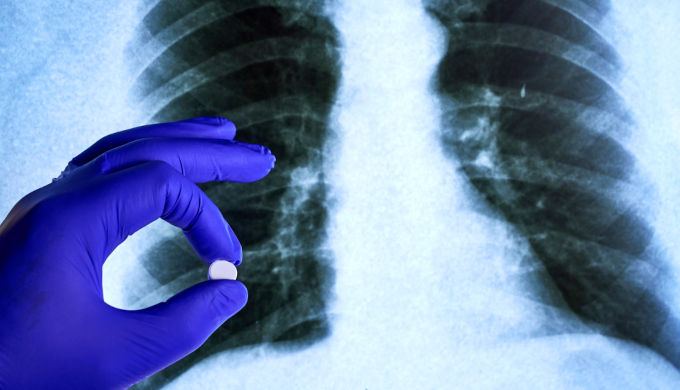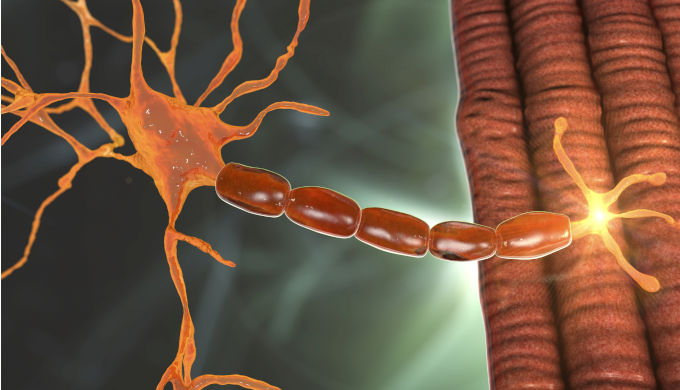Author: Lucy Piper
medwireNews: The addition of tofacitinib to conventional disease-modifying antirheumatic drugs could help alleviate sclerosis in patients with systemic sclerosis-associated interstitial lung disease (SSc-ILD), suggests research.
The retrospective study, published in Clinical Rheumatology, showed improvements in the attenuation of inflammation, skin thickness, respiratory outcomes and radiological abnormalities.
Zhou Junfei (People’s Hospital of Zhengzhou University, China) and co-authors note that “treatment options for SSC-ILD remain limited and treatments such as gamma globulin, autologous hematopoietic stem cell transplant, and lung transplantation are reserved for patients with severe situations with limited efficacy.”
They compared two groups of patients with SSc-ILD who had an average age of about 52 years at diagnosis, the majority (89%) of whom were women: nine patients (89% women) who were treated with the Janus kinase (JAK) inhibitor tofacitinib in addition to conventional immunosuppressants and 35 patients who were treated with at least one conventional immunosuppressant in combination with low or medium doses of steroids. The most common immunosuppressants were cyclophosphamide, mycophenolate mofetil and methotrexate.
After approximately 6 months, tofacitinib treatment was associated with significant decreases in erythrocyte sedimentation rate (21.11 vs 10.14 mm/h), C-reactive protein (11.17 vs 4.55 mg/dL) and serum levels of lactate dehydrogenase (LDH; 271.44 vs 141.30 U/L) and interleukin (IL)6 (16.84 vs 7.65 pg/mL).
And in the case of LDH and IL-6, the reductions with tofacitinib were significantly greater than those seen among patients not taking tofacitinib, at 128.70 versus an increase of 7.60 U/L and 7.19 versus 0.70 pg/mL, respectively.
Tofacitinib was also beneficial in reducing the severity of skin thickness, as shown by a significant decrease in the modified Rodnan skin score, from a baseline 9.22 points to 7.11 points, whereas there was no significant reduction in the group not taking tofacitinib.
Pulmonary function measured in eight patients showed a significant improvement with tofacitinib for diffusion capacity of carbon monoxide, which increased from 62.05% of predicted to 66.61% of predicted, giving a 4.56% of predicted increase compared with just 0.48% of predicted in 22 available patients not taking tofacitinib.
“This suggests that tofacitinib may slow down the progression of SSc-ILD and potentially improve survival in these patients”, say the researchers.
However, there were no significant changes in forced vital capacity or total lung capacity, which the team says “emphasizes the need for larger-scale clinical studies and sufficient follow-up time to fully evaluate the efficacy of JAK inhibitors in this patient population.”
Pulmonary high-resolution computerised tomography (HRCT) scans carried out in nine patients treated with tofacitinib and 35 who were not also showed the “efficacy of tofacitinib in improvement of ILD in the SSc patients in real-world practice,” comment Junfei et al.
Specifically, the reduction in HRCT score from 15.00 to 12.66 points following treatment with tofacitinib, was a significant 2.63 points greater than the negligible 0.72-point decrease seen following treatment without it.
Other HRCT measures showing improvement were ground-glass attenuation, which was significantly reduced with or without tofacitinib, but to a significantly greater degree with the JAK inhibitor. And irregular pleural thickening, which was only significantly decreased in the tofacitinib treatment group.
The researchers report that in logistic regression analysis, both ground-glass attenuation and the use of tofacitinib were independent factors significantly increasing the chances of HRCT amelioration by 11.43-fold and 9.98-fold, respectively.
They comment: “While no clear correlation has been established, our findings provide evidence for the potential benefit of JAK inhibitors in the treatment of SSc-ILD and yield hope for the role of JAK inhibitors in the treatment of SSc pulmonary fibrosis.”
And add that “[m]oving forward, a well-designed, double-blind, randomized controlled trial is necessary to establish causal relationships”.
News stories are provided by medwireNews, which is an independent medical news service provided by Springer Healthcare Ltd. © 2023 Springer Healthcare Ltd, part of the Springer Nature Group
This independent news story was supported by an educational grant from L’Institut Servier, Suresnes, France.
Image Credits: © сергей тарануха / Stock.adobe.com



